#c: elizabeth
Explore tagged Tumblr posts
Text
"Awe really? But my bad attitude and lack of respect missed you," she pouted sarcastically, resisting the urge to eye-roll. Gwen refused to call Elizabeth her mother since she was about 18, figuring she didn't deserve it given their history. It took no time at all for Elizabeth to fire back, ever the wise alpha that he was. Elizabeth knew that Gwen's full name got under her skin. No one called her that. Even when she became a B-List celebrity she refused to go by anything other than Gwen. Hearing her full name come out of her mother's stern voice sent a chill up Gwen's spine, bringing her back to a lifetime of discipline and corrections. "Figured you weren't. I mean, you haven't so far so why stop now?" she bit back. "Checking in on your little golden boy? And not the daughter you've been lying to?"

She wasn't surprised to see the utter look of disdain on Gwendolyn's expression but she barely flinched, she had seen plenty of it in her adolescence. It was clear that there had always been a rift between the mother and daughter. She belonged to her husband, Gwen was his miracle child and so it was easy for to step aside and let him spoil her. Of course Gwen always thought this was a slight against her, she couldn't handle being so doted on and loved so it must have been Elizabeth's fault.
"Well I wasn't reminicing about your bad attitude and lack of respect, Gwendolyn," she answered, crossing her arms over her chest. The girl was over a century old and still acted like a bratty pup and she wondered why Elizabeth didn't see a leader in her, she was too self obsessed and narcissitic to put others first. "I'm not even back for you, how self absorbed are you to think everything is about you?"

#c: elizabeth#gwen#lemme know if this is okay#i also didn't know if you wanted to continue this or something new?
25 notes
·
View notes
Text

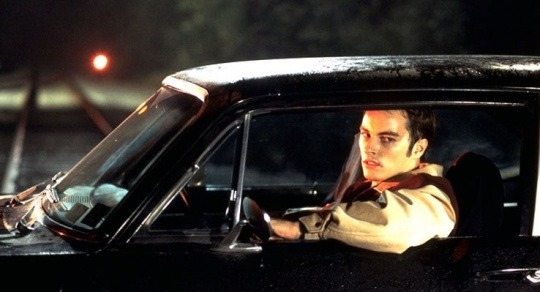

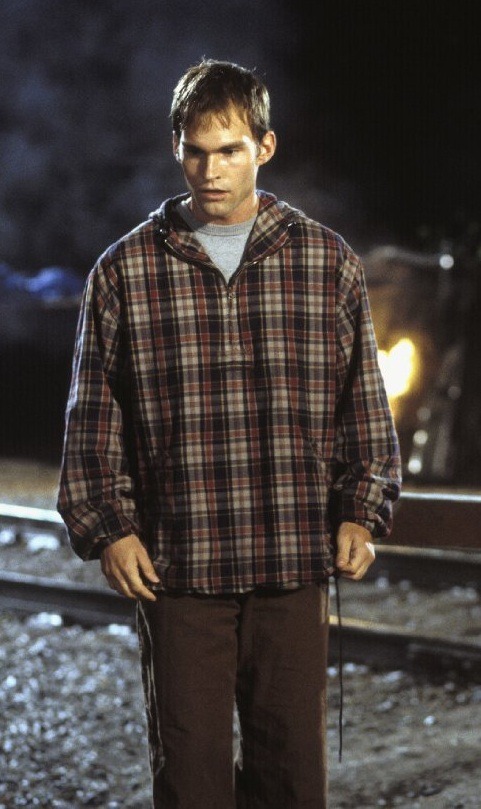







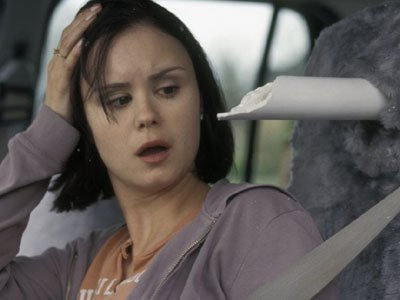
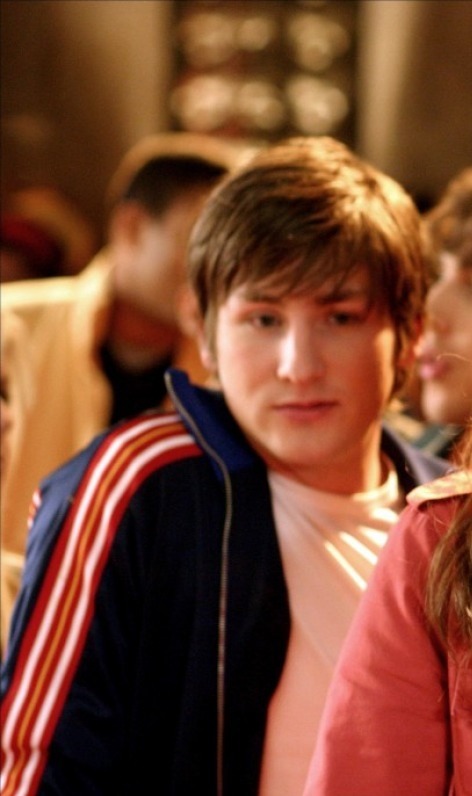
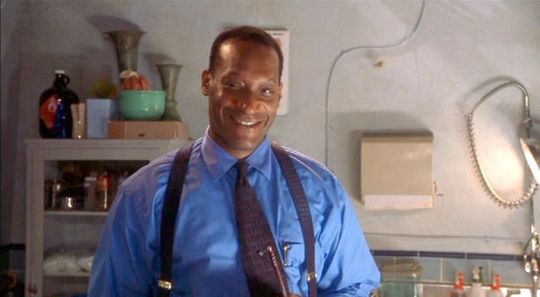
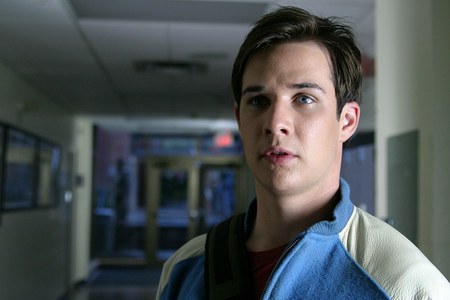
The most charismatic characters of Final Destination.
#final destination#alex browning#devon sawa#william bludworth#tony todd#clear rivers#ali larter#billy hitchcock#seann william scott#carter horton#kerr smith#final destination 2#thomas burke#michael landes#kat jennings#keegan connor tracy#rory peters#jonathan cherry#eugene dix#t. c. carson#t c carson#final destination 3#wendy christensen#mary elizabeth winstead#ashley freund#chelan simmons#ashlyn halperin#crystal lowe#ian mckinley#kevin fischer
375 notes
·
View notes
Text
I just want to point out that it's a popular mistranslation what Lizzy said in this chapter. It's not that Lizzy thinks she would've "said" something that cruel, but that she would've "thought" it.
The left is the fan translation and the right is the official yen press translation.


Does the difference really matter? Perhaps not but I find it telling.
On one hand, how empathetic Lizzy is to consider another reality where she would have simply thought something like this, and how cruel it would have been to o!Ciel, and sympathized with him enough she understood why he came back the way he did.
And on the other hand, how deranged the fandom was to give her so much hell and back over what was basically thought crimes.
#this always pissed me off#i mean the og japanese mightve been vague whether it was a thought or something she would've said but idc#like no i dont think that lizzy would have actually said that to o!ciel's face#or that she couldn't get over her grief in time and befriended o!c as himself#we have to remember lizzy's in an extremely emotional worn-out state rn#she's not going to be a fair judge of herself when she's struggling with so much guilt and shame#kuro#elizabeth midford#blue cult arc#🍅🍅🍅#b.txt
95 notes
·
View notes
Text
Oh...it would have to be the right person for them before I let them get married. As for a grandfather...that may have crossed my mind one or twice but I am not rushing either of them. Usually for me it is why I am picking certain players even if they haven't done so great with their club.
Before you know it, your kids might end up getting married and you'll be a grandfather. Is that something you'd want eventually? to be a grandfather? Oh, you're lucky. Even if I promote a project that doesn't have anything to do with Marvel, I always get asked about Wanda. I don't mind it, but some questions tend to be a little repetitive.

108 notes
·
View notes
Text












"Okay, let me just say something here. I'm not completely sure that I saw what I saw." "Come on, you told us that you saw it." BRAINDEAD (2016) EP11: Six Points on the New Congressional Budget: The False Dichotomy of Austerity vs. Expansionary Policies
#braindead#braindeadedit#gareth ritter#aaron tveit#aarontveitedit#laurel healy#mary elizabeth winstead#gustav triplett#johnny ray gill#rochelle daudier#nikki m james#dexter wu#marcus ho#usermaya#clairedaring#userairam#long post#edit: mine#type: gif#show: braindead#c: gareth ritter#c: laurel healy#c: gustav triplett#c: dexter wu#c: rochelle daudier#fav: scene
53 notes
·
View notes
Text
What if I told you my pseudonym was Peter Parker? Too on the nose? Probably. But no one's going to suspect that Andrew Garfield is that ridiculous... are they? Now I'm rethinking my strategies. Lizzie Olsen herself embarrassed to flirt? There's a take I didn't consider, although I guess it speaks to both of us being some kind of awkward. I know what you mean, it's a tough world out there and it's just easier to turn inward, sometimes. I've done it a lot over the years, and probably still. It feels lucky to take a break from it all, although I am eager to get back into a role sooner rather than later. Oh, I love Vancouver, but I don't love that your personal life is any kind of dumpster fire. We mightn't know each other that well, but if you ever need a sounding board, I'm here. Please do. I'll be waiting.

That's what happens when you're successful the way that you are. But that also makes sense, I'm sure the Uber Eats folks are always happy to deliver whatever "Andrew G." is craving. Unless you use a pseudonym, which might be smart. I'd prefer to leave the baristas without me flirting back in fear of embarrassing myself. Putting myself back on the market seems like an idea that'll make me nauseous. Enjoying life in the in-between sounds like what we all wish to achiever. I just touched down in Vancouver to start shooting a film, glad to get my mind off of the dumpster fire that is my personal life. And the second I hear about the fate of our film, I'll let you know.

7 notes
·
View notes
Text
Speaking of the social context of P&P and Austen in general, and also just literature of that era, I'm always interested in how things like precisely formulated hierarchies of precedence and tables of ranked social classes interact with the more complex and nuanced details of class-based status and consequence on a pragmatic day-to-day level. I remembered reading a social historian discussing the pragmatics of class wrt eighteenth-century English life many years ago and finally tracked down the source:
"In spite of the number of people who got their living from manufacture or trade, fundamentally it was a society in which the ownership of land alone conveyed social prestige and full political rights. ... The apex of this society was the nobility. In the eyes of the Law only members of the House of Lords, the peerage in the strictest use of the word, were a class apart, enjoying special privileges and composing one of the estates of the realm. Their families were commoners: even the eldest sons of peers could sit in the House of Commons. It was therefore in the social rather than in the legal sense of the word that English society was a class society. Before the law all English people except the peers were in theory equal. Legal concept and social practice were, however, very different. When men spoke of the nobility, they meant the sons and daughters, the brothers and sisters, the uncles and aunts and cousins of the peers. They were an extremely influential and wealthy group.
"The peers and their near relations almost monopolized high political office. From these great families came the wealthiest Church dignitaries, the higher ranks in the army and navy. Many of them found a career in law; some even did not disdain the money to be made in trade. What gave this class its particular importance in the political life of the day was the way in which it was organized on a basis of family and connection ... in eighteenth-century politics men rarely acted as isolated individuals. A man came into Parliament supported by his friends and relations who expected, in return for this support, that he would further their interests to the extent of his parliamentary influence.
"Next in both political and social importance came the gentry. Again it is not easy to define exactly who were covered by this term. The Law knew nothing of gentle birth but Society recognized it. Like the nobility this group too was as a class closely connected with land. Indeed, the border line between the two classes is at times almost impossible to define ... Often these men are described as the squirearchy, this term being used to cover the major landowning families in every county who were not connected by birth with the aristocracy. Between them and the local nobility there was often considerable jealousy. The country gentleman considered himself well qualified to manage the affairs of his county without aristocratic interference.
"...The next great layer in society is perhaps best described the contemporary term 'the Middling Sort'. As with all eighteenth-century groups it is difficult to draw a clear line of demarcation between them and their social superiors and inferiors. No economic line is possible, for a man with no pretensions to gentility might well be more prosperous than many a small squire. There was even on the fringe between the two classes some overlapping of activities ... The ambitious upstart who bought an estate and spent his income as a gentleman, might be either cold-shouldered by his better-born neighbours or treated by them with a certain contemptuous politeness. If however his daughters were presentable and well dowered, and if his sons received the education considered suitable for gentlemen, the next generation would see the obliteration of whatever distinction still remained. The solid mass of the middling sort had however no such aspirations, or considered them beyond their reach.
"...This term [the poor] was widely used to designate the great mass of the manual workers. Within their ranks differences of income and of outlook were as varied as those that characterized the middle class. Once again the line of demarcation is hard to draw..."
—Dorothy Marshall, Eighteenth Century England (29-34)
(There's plenty more interesting information in the full chapter, especially regarding "the poor," and the chapter itself is contracted from a lengthier version published earlier.)
#anghraine babbles#long post#dorothy marshall#eighteenth century england#austen blogging#eighteenth century blogging#also thinking about this in terms of elizabeth spending so much of pride and prejudice /acutely/ conscious of a social divide#between her family (as in the bennets and mr collins) and darcy's status - so her claim to equality with him w/ lady catherine is- well#not a dry sociological statement but an important character moment for elizabeth (and lady catherine!)#realistically darcy's lifestyle politics and interests ARE far more allied with ppl like the fitzwilliams than ppl like the bennets#and elizabeth is not at all ignorant of that - it's why she initially thinks he's too much of a great man to be interested in her#even before she knows of his close connections to literal nobility#and that is probably the more ... normative? understanding of their respective positions.#so her later claim to equality with him - in a way that forces ly c to acknowledge elizabeth's own status - is not a simple neutral truth#but weighted in a way that's important thematically and for elizabeth's development - something that the pure sociological take misses imo#anghraine's meta#austen fanwank#sorta
162 notes
·
View notes
Text
Classic lit. Doodle
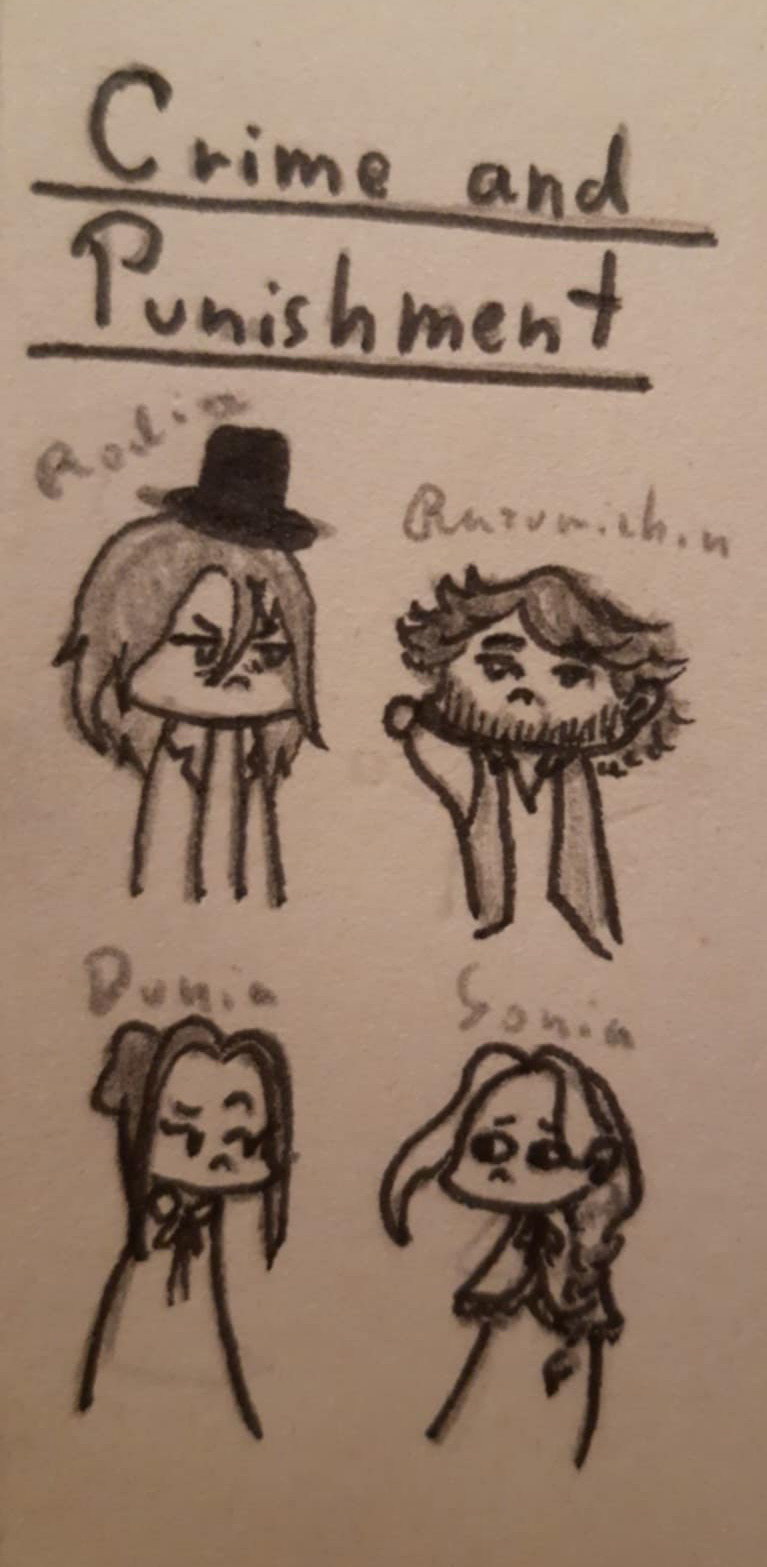
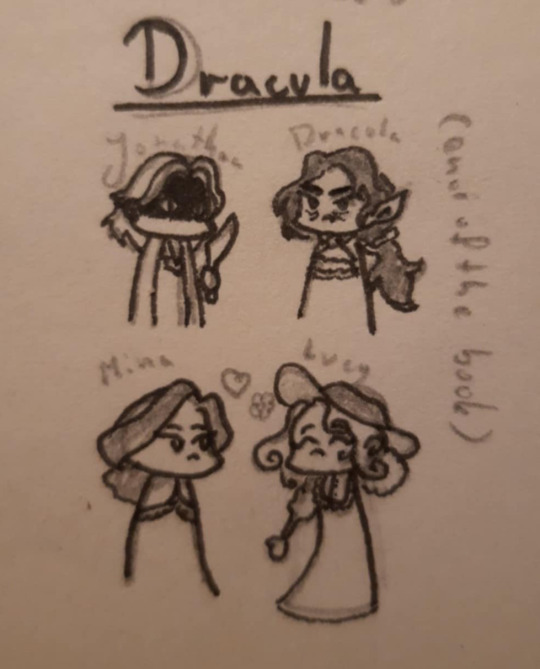

Frankenstein oficially on my favorite classic lit. list.
#art#my art#my doddles#doddle#frankenstein fanart#frankenstein#victor frankenstein#henry clerval#crime and punishment#c&p#c&c fanart#dmitri prokofich razumikhin#dmitri razumikhin#raskolnikov#rodion romanovich raskolnikov#dunia#Sonia marmieladova#Sonia#dracula#dracula fanart#jonathan harker#mina murray#mina harker#lucy westenra#count dracula#elizabeth lavenza#justine moritz#dunya raskolnikov
37 notes
·
View notes
Text
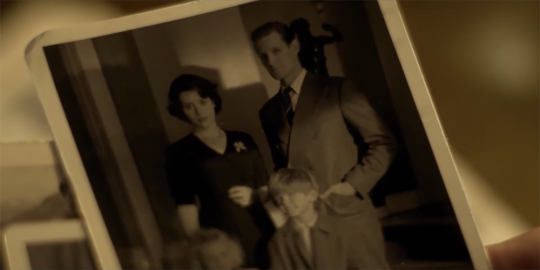

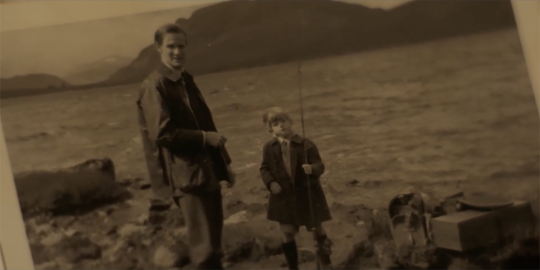





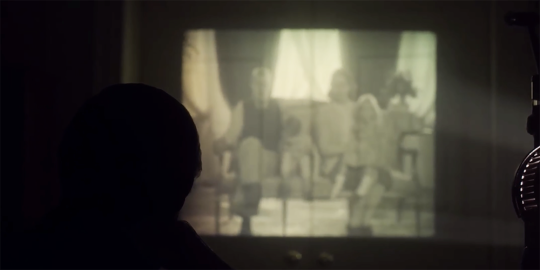
CLAIRE FOY as young QUEEN ELIZABETH II and MATT SMITH as young PRINCE PHILIP in THE CROWN Season 6
#queen elizabeth ii#prince philip#the crown#matt smith#claire foy#mine#i finally watched s6#didn't care a bit about c&c or w&k or harry#but imelda was excellent as the queen#also rhaenys as carole middleton lol
52 notes
·
View notes
Text
Stop, you're too good to me. You seriously know how to lift someone's spirits. Oh, absolutely, I'm surrounded by amazing women who are also mothers and are going through similar situations. It makes me feel less alone. You don't want to have kids? I used to say the same thing, now look at me with 2. Yess! I do remember the character. I'm so far behind, I can't believe I didn't know about this show. I need to see it ASAP. Also, I can look at that gorgeous face of yours. Perfect! Maybe sometime this weekend?

I mean Id do anything for you, dying on a stick included really. I mean thats a realist thought though, no one blame you for slipping in the feeling of it but I bet it helps to know you arent alone. Obviously you are being a very fair and understanding mom, this isnt also why I should not have kids cause I would be like you are coming on the road. Who knows maybe I wont be like that but definitely a fear id be. But then again it's understandable none of like to travel too much. Yeah you remember the character Elsbeth? It focuses on her. I would be so down for that

8 notes
·
View notes
Text



mua >_< [oc and canon /PLATONIC]
#five nights at freddy's#fnaf#fnaf au#fnaf fanart#fnaf sister location#art#digital art#artwork#elizabeth afton#oc#fnaf oc#oc and canon#oc x canon#oc tag#oscar c. balfour#minerva a. afton
36 notes
·
View notes
Text
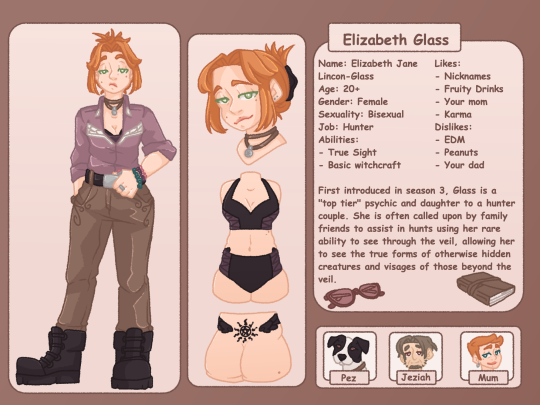
Found some OG stuff that made me wanna giver her a proper character sheet. And change her hair, again.

#OG ref under the cut! From like 2016/2017 ish I think#Feel free to ask about her! It's a great way to brainstorm lore#c: elizabeth glass#true sight au#spn oc#hunter oc#supernatural oc#reference sheet#spn#supernatural#spn fanart#spn fandom#supernatural fanart#supernatural fandom
32 notes
·
View notes
Text
DRK-SANCTUARY'S WIP/FIC MASTERPOST:
FINISHED/ WORKS IN PROGRESS:
BANDITS AND SHERIFFS:
Completed western AU for the PJO BigBang back in 2014. Around 50k words, collaboration with @thomas-life. Fictional "western setting" not historically accurate American west.
Original post for it HERE.
Link to Fic on Ao3: HERE
Title art HERE.
Character art HERE.
LIFTING THE MIST CURSE COMIC
(Mist Comic): A fan comic that chronicles an alternate timeline where Nico Meets Al after the event of BoO. Al comes to CHB to have people help him Lift the Mist Curse. (Rated M)
Chapter 1 HERE.
Miscellaneous Mist Comic:
Sketches
Excerpt with Al and Dionysus
nicobaster comic "Oreo Meme"
Nicobaster fluff scene
Dreams "amv" comic.
SON OF MAGIC VOLUME 2
(SoM V2): similar to mist comic Al and Nico meet after BoO (but waaay after in their early to mid 20's). Al is mired in the Olympian Underground/black market, Nico who is just trying to be a good camp recruiter gets dragged into Al's problems, but he kinda likes it. (Rated M)
Chapter 1 (TBD)
Miscellaneous SoM V2:
Post with better context
cover sketch draft
misc sketches and context
Al's updated club outfit
Silly meme
Excerpt from (likely) chapt 2
THE NEW GOLDEN AGE (Titan AU)
Al and Nico meet during the titan war, Titans end up winning with the help of the Giants. Like PJO but infinitely more YA novel about it. (Rated T)
Prologue: A03 post and link HERE, Regular Tumblr Post HERE
Chapter 1: HERE
Chapter 2: HERE
MAKING YOUR MARK ON ME (Tattoo AU) (EXPLICIT)
AU where Nico and Al meet as adults well after the wars. Alabaster Torrington owns a Magical Tattoo Parlor/Magic Shop. Nico di Angelo is a frequent customer, but when Nico goes there this time, it’s not for business… it’s for pleasure. (Rated E for language and sexual content. You have been warned)
Chapt 1 SFW (just the picture): HERE
Sketch of Alabaster SFW: HERE
Chapter 1: NFSW (Pic and fic) tumblr post HERE and Ao3 link HERE (rated M, really)
Chapter 2 (Actually rated E): on Ao3: HERE
HIDDEN GEM CAFE
technically the fic is a little fluff piece entirely written by @thomas-life not me but I drew the picture. link HERE. (Rated G)
CAMP CHTHONIC
More AN RP blog than a fic but if i do fics they will be posted on the sideblog: @campchthonic
OUT OF TARTARUS
A comic we started after the release of Mark of Athena. Nico escapes tartarus and immediately runs onto Alabaster. (rated T)
Chpt 1 Part 1/Pages 1-10 HERE
Chpt 1 Part 2/Pages 11-20 HERE
Chpt 1 Part 3/Pages 21-27 HERE
Chpt 2 Part 1/Pages 28-37 HERE
Chpt 2 Part 2/Pages 38-47 Pages HERE
Chapt 2 Part 3/Pages 38-57 (and bonus pg 58 posted later) HERE
A PIECE OUT OF PLACE
Victorian AU Jasico and Bianca/Alabaster (i know its odd but trust me it made sense). also i know, NOT NICOBASTER??? wha??? (Also rated M)
Jasico Week Picture And Summary HERE
Jasico Dramatic Kiss pic HERE
Jasico steamy scene pg 1 and 2 (kind of NSFW) HERE
Victorian Sketches HERE
Victorian Sketches (old) has Piper bc it was before we changed it to Bianca HERE
Cute Jasico Sketches HERE
Victorian Jasico Meet-cute HERE
Jason and the wolves HERE
SNIPPET FIC/IDEA DUMPS
CHTHONIC CAMP AU (fanfic for a fanfic)
Not to be confused with the camp Chthonic blog above these are all the links for stuff I did for my interpretations and headcanons and AUs for @gutsybitsies Chthonic Camp AU. Their original fic HERE.
Jason and Nico and Al. HERE.
Nicobaster ficlet. HERE
Nicobaster looking bamf. HERE.
Alabaster being extra: HERE
ANCIENT CHTHONIC NICOBASTER (rated M)
"But your highness our love is forbidden" pic. HERE
APHRODITE NICO/THEMIS AL
Original post: HERE
Post with Drew (Nico's sister): HERE
Aprodite!Nico and Mars!Jason: HERE
JACKSON HOUSE NICOBASTER (rated M ig)
Idea post HERE
Nicobaster sketches for the AU: HERE
SLUT AU (rated M)
Idea post HERE
NICOBASTER FANFIC TO ORIGINAL WORK PIPELINE
MEDIEVAL PJO (KnightSlayer)
"A bastard shall be king." ....So reads the Prophecy of the Ages. But with a war on the horizon and Hazel to feed, Nico has more to worry about than kings and their bands of upper class sycophants. That is, until Percy comes along, and suddenly he finds himself right in the middle of it all... (rated M)
Ao3 link: HERE
Al and Nico Meeting: HERE
Nico and Percy (kiss). HERE (might be considered mature by some)
Nico backstory. HERE (rated M for Violence)
Chapt Pictures i had planned. HERE
Ball Sketches HERE
Nico Backstory 2 (sad) HERE
Nico and Percy Thestral encounter HERE
Miscellaneous Medieval AU Nico Sketches: Sketch 1 HERE, Sketch 2 HERE, Sketch 3 HERE.
MERMAID AU (Through the Sea Glass)
Like "the little mermaid" but with extra fantasy world building and the prince (Nico) ACTUALLY falls in love with the Sea Witch (Alabaster) instead of the mermaid (Percy) rated G
Summary with pictures HERE
Octokind Alabaster HERE
PHANTOM AU - (Phantom Haven)
Nico's near-death experience endows him with powers and now he has to be a Savior which means he has to fight phantoms to keep people safe which would be a doable job, BUT that's not the only task of a Savior. He also has to uphold the integrity of the Savior System (ugh),Do good deeds and report them to his supervisor (double ugh), train his Lumen (dead eyed little thing doesn't like to listen to him so...ugh again!) and last but definitely not least he has to dedicate his life to figuring out how to use his endowment to cure a great societal problem... to perform... a MIRACLE TM. (yikes on bikes, no pressure). Will he be able to live up to the expectations of greatness that has been thrust upon him? or will he fail?
Character concepts 1-6 HERE
Character concepts 7-8 HERE
CHIP AU - (No original title yet)
Modern Human AU in which an aimless Nico's life is changed for the better when someone abandons their little baby girl (Hazel) on the steps of the refurbished fire house he now lives in. Years later he finds a little kid named Frank and adopts him as well. Now he just needs to navigate life as a single parent which he is mostly fine with until Bianca tries to set him up with her fiance's best friend (Alabaster). Will this romance stay the casual fling it started as or could it blossom into something more? (Rated M)
NIco with bb hazel HERE
CHURCH AU - (no original title yet)
An AU where Nico sells his soul to save his family from dying, when he meets his untimely death however he finds that Hell is not what he expected, its a quarry, and is he does his quotas, he can ascend the ranks, and even make it to heaven. Each Level comes with its own set of rules. The level right before heaven, which requires Demons to go to earth to collect evil humors that taint people's souls, has the MOST rules. With him being unable to see his family, not knowing what he's doing, and finding out that his childhood friend has grown into a handsome...Preist in training?!? Nico finds that he can't keep the all of the rules straight, especially because he's not. (Rated M)
Nico as a Demon pic HERE
There's quite a few more AUs but the above shows most of them.
If you'd like to know more about the above or about the ones not mentioned please subscribe to "Nicobaster premium" for the low low price of Free.99! And if you are 18 or older and interested I also have Nicobaster Premium 18+ (for the same price for all your smutty needs. Tee Hee!)
That's all, Nicobaster Houshold!...FOR NOW!
OTHER MASTERPOSTS
MISCELLANEOUS NICOBASTER - Here
ALABASTER BEING BBG - Here
#alabaster torrington#nico di angelo#alabaster c torrington#pjo#nicobaster#percy jackson#heroes of olympus#son of magic#jason grace#ethan nakamura#jasico#thunderworld#annabeth chase#rachel elizabeth dare#hazel levesque#percy jackson and the olympians#ethabaster#octavian (pjo)#howard claymore#piper mcclean#Leo Valdez#titan army#drew Tanaka#sally jackson
54 notes
·
View notes
Text









Fnaf dump again lol
‼️Last strawpage on the left is from me but the doodle on top is not‼️ [Aquavolt_] on twt!! Check them out!!
Mostly shitposts and meme redraws!! Plus a little fathers day shit- a fully colored thing 4 once ik I love drawing glitch ^^
Also bonus wil bcuz I wanted my hyperfixations to kiss/jk its so weird seeing how dif I draw them 2gether
Set up a strawpage recently ^^ feel free 2 send smthn!!
It'd make my day!! \(^w^)/
#my art#system art#c!wilbur fanart#c!wilbur#fnaf fanart#dave miller fanart#fnaf dave miller#william afton fanart#fnaf william afton#william afton#steve raglan#glitchtrap#fnaf glitchtrap#dsmp#fnaf#fnaf mike#elizabeth afton#chris afton#evan afton#crying child#fnaf cc#Im so sorry for these tags oh my#dsmp fanart#wilbur soot fanart#spring bonnie#golden bonnie
21 notes
·
View notes
Text






RANDOM GARETH RITTER GIFS: 115 / ∞
#braindead#braindeadedit#gareth ritter#garethritteredit#aaron tveit#aarontveitedit#laurel healy#mary elizabeth winstead#television#tvedit#usermaya#long post#edit: mine#edit: gif#*gareth#type: gif#show: braindead#c: gareth ritter#c: laurel healy#hey why is this scene so poorly lit!!!!!!
88 notes
·
View notes
Text
Elizabeth Kent

Lunaria annua
The meaning of lunaria in the language of flowers is honesty.
‘Why did you live? If nothing can survive when the Blade is drawn.’
Her relentless child logic cut right into him. Her face was set in stubborn lines. He remembered that she’d seen through him that night too. I knew you’d sneak out. You’re a sneak.
#dark rise#dark heir#c s pacat#dark rise fanart#dark heir fanart#elizabeth dark rise#elizabeth kent#art#my draws#traditional art#my art#sketch#рисунок#традишка#fanart#illustration
26 notes
·
View notes